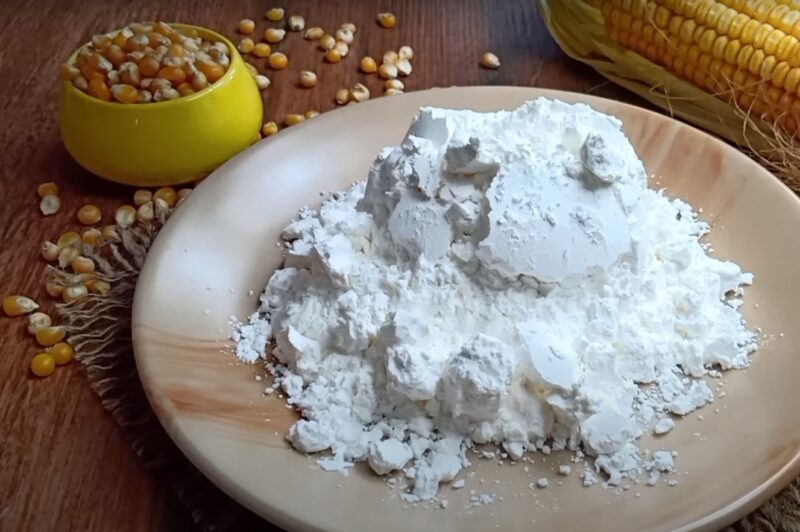Cornstarch, a pantry staple, is often a subject of curiosity for those pursuing a vegan lifestyle. In this in-depth exploration, we’ll unravel the mysteries surrounding cornstarch, its vegan status, and its role in our diets and kitchens. Let’s look into this fascinating topic, armed with insightful knowledge and keen awareness.
Cornstarch is derived from corn, a naturally plant-based food. This simple fact forms the foundation of its vegan-friendly nature. But what does it mean to be a vegan-friendly product, and why is cornstarch considered one?
Key Takeaways
- Cornstarch is unequivocally vegan-friendly.
- Its refined nature means it should be used with nutritional balance in mind.
- Awareness of gluten cross-contamination is essential for some consumers.
- Exploring alternatives can enrich your culinary repertoire.
Cornstarch: A Vegan-Friendly Ingredient
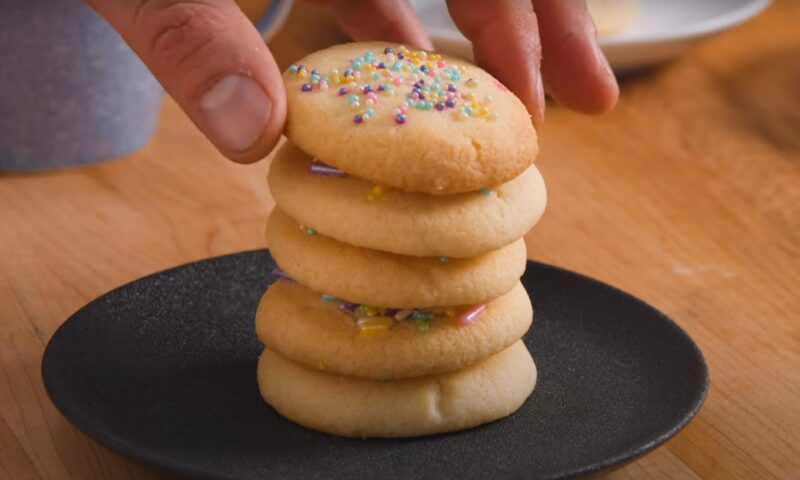
- Origin: Cornstarch comes from the endosperm of corn kernels, ensuring it does not contain animal products.
- Process: The transformation from corn to cornstarch involves a process of milling and refining, keeping it free from animal derivatives.
- Vegan Considerations: For vegans, the absence of animal involvement makes cornstarch a go-to ingredient in cooking and baking.
The Refined Nature
Cornstarch is a highly refined product, low in micronutrients, and is considered a refined carbohydrate. This aspect is crucial to understand for those mindful about their diet’s nutritional profile.
- Nutritional Content: Despite being vegan, cornstarch is not a significant source of vitamins or minerals.
- Dietary Role: It should be used as a cooking ingredient rather than a nutritional supplement.
Health and Safety: Raw Consumption and Shelf Life
- Safety in Consumption: Eating raw cornstarch is not recommended as it may contain harmful bacteria.
- Storage and Shelf Life: Cornstarch has an indefinite shelf life if kept dry and away from moisture, making it a durable pantry item.
Cornstarch in Culinary Use: Thickening and Beyond
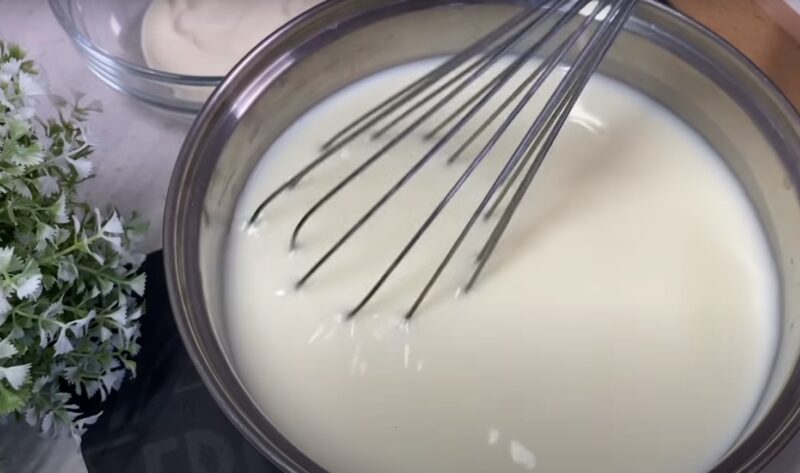
Cornstarch is renowned for its role as a thickening agent in various culinary applications. Let’s explore its uses and alternatives.
Cornstarch vs. Corn Flour: Difference
- Distinct Identities: Cornstarch is not the same as corn flour and has different uses in recipes.
- Texture and Usage: Cornstarch offers a translucent, glossy finish and is ideal for sauces and gravies, while corn flour is used for breading and in baking.
Gluten Considerations
While cornstarch is gluten-free, it may be processed in facilities that handle gluten-containing foods. This is a crucial point for those with gluten sensitivities or celiac disease.
- Label Checking: It’s important to check labels for gluten-free certification to ensure safety.
Alternatives
For various reasons, ranging from dietary preferences to availability, you might seek alternatives to cornstarch. These include:
- Potato Starch: Great for thickening at lower temperatures.
- Tapioca Starch: Offers a chewy texture, ideal for pies and puddings.
- Arrowroot: Works well for acidic dishes.
- Xanthan Gum: A little goes a long way for soups and sauces.
- Wheat Flour: Not gluten-free but a common thickener.
A Global Perspective
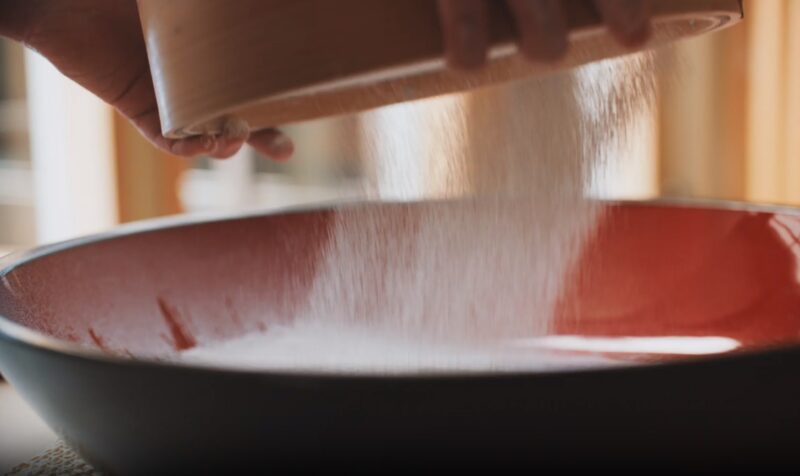
The production of cornstarch is a global affair, with countries like China, Brazil, and India leading in its manufacture. Understanding its global journey helps us appreciate its availability and the economic dynamics involved.
Sustainable Considerations
- Local vs. Global: Choosing locally-produced cornstarch can reduce carbon footprint.
- Agricultural Practices: Awareness of farming practices in corn production is vital for environmentally conscious consumers.
Creative Uses in Vegan Recipes
Cornstarch isn’t just for thickening soups and gravies; its applications are vast and varied. Let’s explore some creative ways to use cornstarch in vegan cooking:
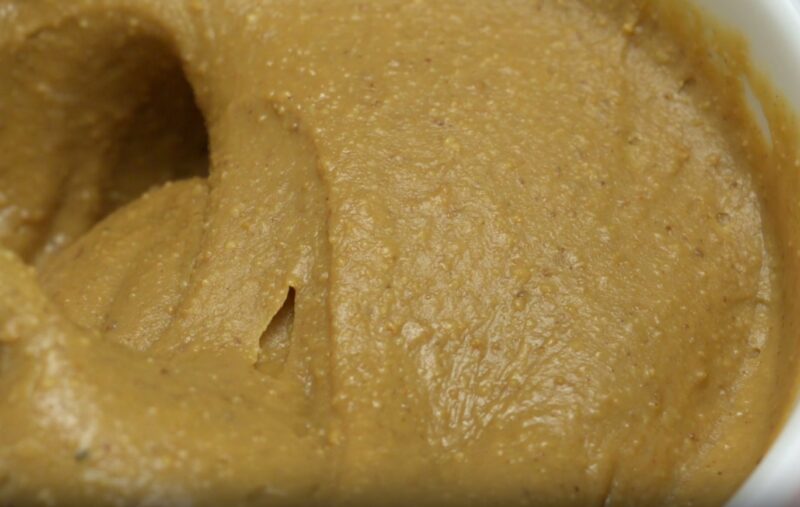
- Crispy Coatings: Use cornstarch in batter for crispy tofu or vegetable fritters.
- Dairy-Free Desserts: Perfect for thickening vegan puddings and fruit fillings.
- Egg Substitute: In certain recipes, cornstarch can act as a binding agent, replacing eggs.
Tips for Cooking with Cornstarch
- Mix with Cold Water: Always dissolve cornstarch in cold water before adding to hot liquids to prevent clumping.
- Heat Sensitivity: Cook on medium heat to avoid over-thickening or creating a gummy texture.
- Storage: Keep your cornstarch in a cool, dry place to maintain its thickening properties.
Nutritional Balance and Dietary Considerations
While cornstarch is a great vegan ingredient, it’s important to use it as part of a balanced diet.
- Complementary Ingredients: Pair cornstarch-based dishes with high-fiber, nutrient-dense foods like vegetables, legumes, and grains.
- Moderation is Key: Given its refined nature, use cornstarch sparingly in your diet.
FAQ
Can cornstarch cause allergies?
Yes, while uncommon, some individuals may have an allergy to cornstarch. It’s important to monitor for any allergic reactions, especially if you have a history of food allergies.
Is organic cornstarch better than regular cornstarch?
Organic cornstarch is made from corn grown without synthetic pesticides or fertilizers, which can be a preferable choice for those concerned about these substances.
Does cornstarch have any impact on blood sugar levels?
Yes, as a refined carbohydrate, cornstarch can impact blood sugar levels. Diabetics or those monitoring their blood sugar should use it cautiously.
Can cornstarch be used in raw vegan recipes?
Cornstarch is typically used in cooked dishes. For raw vegan recipes, alternatives like agar-agar might be more suitable.
Is cornstarch environmentally sustainable?
Sustainability depends on the agricultural practices used in growing the corn and manufacturing processes. Choosing organic and sustainably-sourced cornstarch can be more eco-friendly.
Are there any non-culinary uses for cornstarch in a vegan lifestyle?
Yes, cornstarch can be used in DIY personal care products like deodorant or as a natural cleaning agent, aligning with a vegan and eco-friendly lifestyle.
Can cornstarch be composted?
Yes, cornstarch is biodegradable and can be composted, making it an eco-friendly choice for waste management.
Final Words
As we wrap up our exploration of cornstarch and its place in the vegan world, it’s clear that this humble ingredient is more than just a thickener—it’s a gateway to culinary creativity and a testament to the versatility of plant-based cooking. Cornstarch not only enriches our dishes but also aligns with the values of a vegan lifestyle, emphasizing simplicity, sustainability, and a mindful approach to what we consume.
In embracing cornstarch, we embrace a world of possibilities. From thickening savory gravies to creating luscious vegan desserts, cornstarch proves its indispensability in the kitchen. Its role extends beyond cooking, resonating with our desire for a sustainable and ethical lifestyle. Whether you’re a seasoned vegan chef or new to plant-based cooking, cornstarch is a pantry staple that promises to elevate your culinary experiences.

